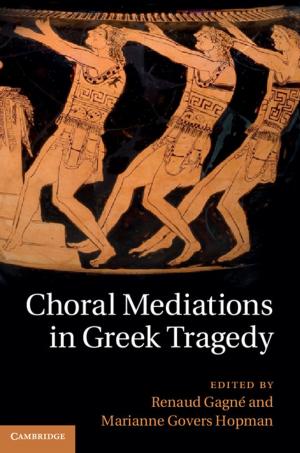Religion, Race, and the Making of Confederate Kentucky, 1830–1880
Nonfiction, History, Americas, United States, 19th Century, Religion & Spirituality| Author: | Luke E. Harlow | ISBN: | 9781139904117 |
| Publisher: | Cambridge University Press | Publication: | April 21, 2014 |
| Imprint: | Cambridge University Press | Language: | English |
| Author: | Luke E. Harlow |
| ISBN: | 9781139904117 |
| Publisher: | Cambridge University Press |
| Publication: | April 21, 2014 |
| Imprint: | Cambridge University Press |
| Language: | English |
This book sheds new light on the role of religion in the nineteenth-century slavery debates. Luke E. Harlow argues that the ongoing conflict over the meaning of Christian 'orthodoxy' constrained the political and cultural horizons available for defenders and opponents of American slavery. The central locus of these debates was Kentucky, a border slave state with a long-standing antislavery presence. Although white Kentuckians famously cast themselves as moderates in the period and remained with the Union during the Civil War, their religious values showed no moderation on the slavery question. When the war ultimately brought emancipation, white Kentuckians found themselves in lockstep with the rest of the Confederate South. Racist religion thus paved the way for the making of Kentucky's Confederate memory of the war, as well as a deeply entrenched white Democratic Party in the state.
This book sheds new light on the role of religion in the nineteenth-century slavery debates. Luke E. Harlow argues that the ongoing conflict over the meaning of Christian 'orthodoxy' constrained the political and cultural horizons available for defenders and opponents of American slavery. The central locus of these debates was Kentucky, a border slave state with a long-standing antislavery presence. Although white Kentuckians famously cast themselves as moderates in the period and remained with the Union during the Civil War, their religious values showed no moderation on the slavery question. When the war ultimately brought emancipation, white Kentuckians found themselves in lockstep with the rest of the Confederate South. Racist religion thus paved the way for the making of Kentucky's Confederate memory of the war, as well as a deeply entrenched white Democratic Party in the state.















